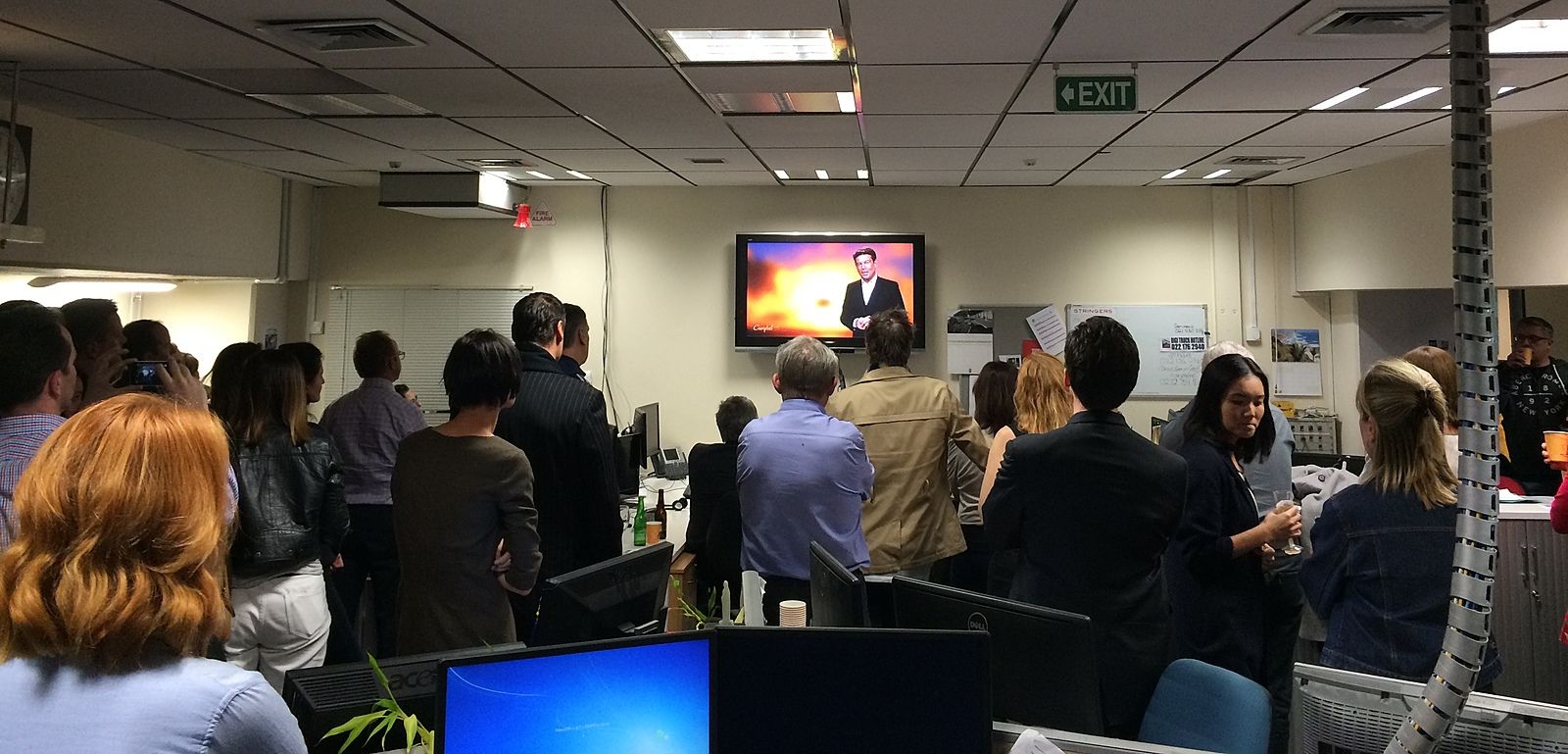A Beautiful Death
Campbell Live's demise was a tragedy, but it also inspired something bloody marvellous, writes Hayden Donnell.
It seems ridiculous that I spent a chunk of Friday evening weeping pathetically over the end of Campbell Live. Neither John Campbell nor his team burst into flames after his last ka kite anō. They'll find new jobs. We'll hear from them again. It's not the end.
Except in some ways it is. Journalists have long known about the wave of grim economics coming to wash us away. We mutter darkly about the future; the seemingly-unsolvable problem of getting people to invest enough cash into our work to keep it sustainable without compromising its quality. But the horsemen of the apocalypse are always a few steps away. On Friday it felt like one of them had arrived, the faint sound of ‘happy days’ lingering on its lips.
Journalism is a little different from most corporate jobs in that its purpose is seen as being more moral than monetary. You're not just meant to satisfy the shareholders, you're meant to somehow do it the right way.
But the innards of our industry look the same as any other. Its beating heart isn’t the newsroom; it’s the accounts department. Our bosses talk visions and strategies, but all of them are trying to achieve the same goal: numbers that point in the right direction. Most of us have been forced into a thousand compromises to keep going under those conditions.
Campbell Live died for refusing to commit our sins. It was never a show that listened to numbers alone. When other publications watered down or whole networks totally gave up, it made afflicting the comfortable and comforting the afflicted a key measure of its success.
That mattered - and not just at MediaWorks. Campbell Live let us know that the stories we wrote off as boring or uneconomic still had a place on primetime. They didn’t have to be squirreled away in magazine features or shoestring-budget blogs; they could run right there at 7pm, on a major TV network.
The viking funeral roaring at MediaWorks and in much of the New Zealand media world shows that its end has been a wake-up call. Campbell's exit was one of the toughest hits we've taken from the forces of commerce. It gave us the message that it’s not enough to do a good job. That making a difference doesn’t mean much. That great journalism doesn’t matter.
MediaWorks staff watching the final Campbell Live. Photo / David Farrier
The mass gathering of chardonnay-wielding journalists after the final show was like a hack version of one of those doomed armies you see in the movies. Campbell played William Wallace, telling the crowd that "journalism matters now more than ever". In response they told him he did a great job. That he made a difference. And that mattered.
Maybe it'll all fizzle out. But the demise of Campbell Live achieved something we haven't seen in a long time: it made us all defiant defenders of journalism again. On Friday night, we stood up and said, with Campbell, that this stuff matters. It was desperately sad and somehow inspiring. And for all that's tragic about the show going, that at least is bloody marvellous.


